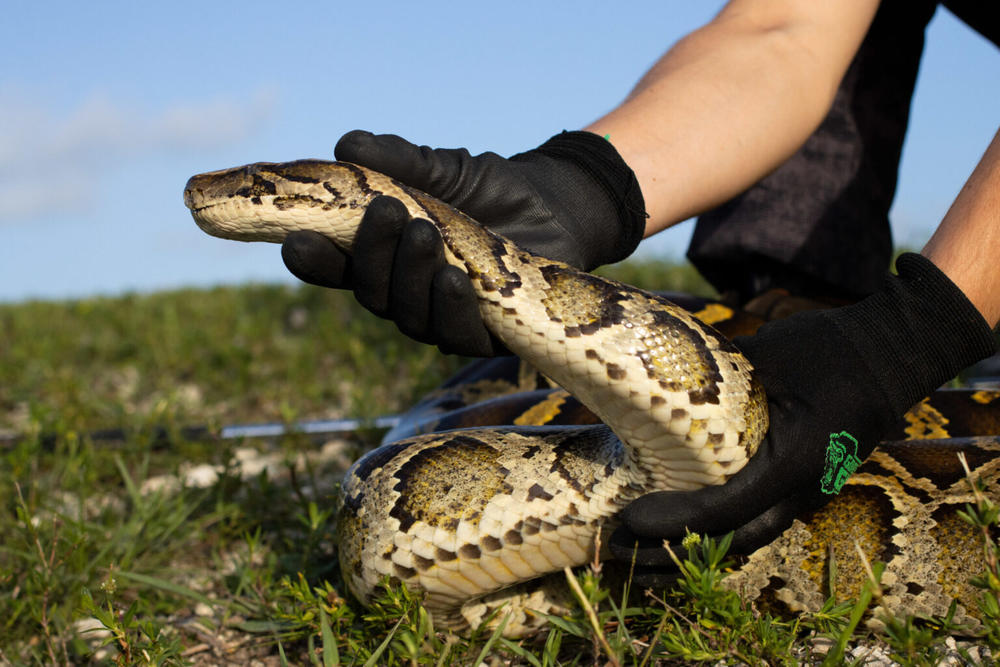
Caption
The U.S. Association of Reptile Keepers petitioned the Georgia Board of Natural Resources to rethink a ban on breeding Burmese pythons. But state regulators were more concerned about protecting native species.
Credit: Andy Wraithmell/Florida Fish and Wildlife Conservation Commission

